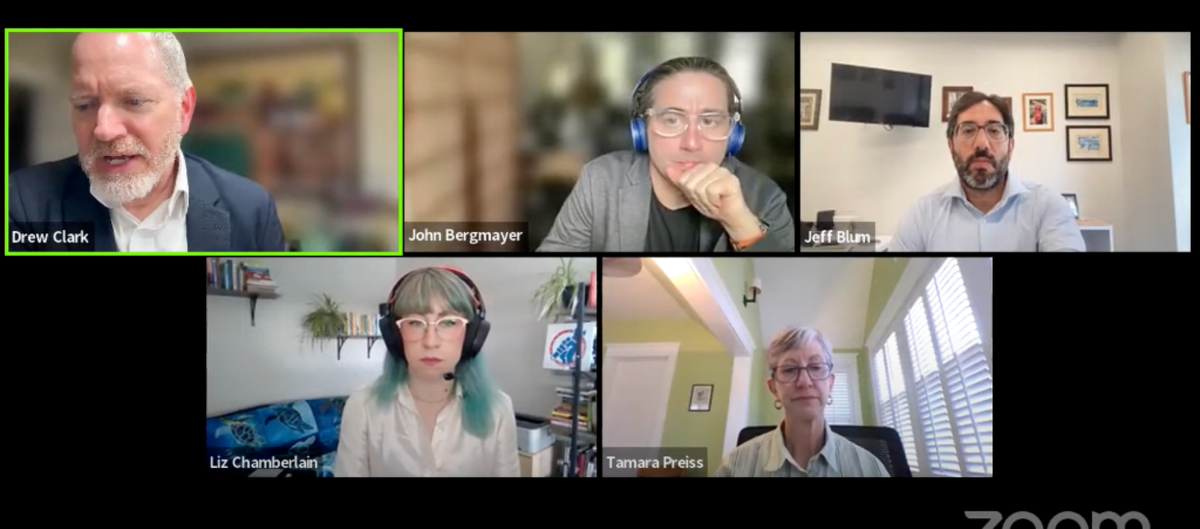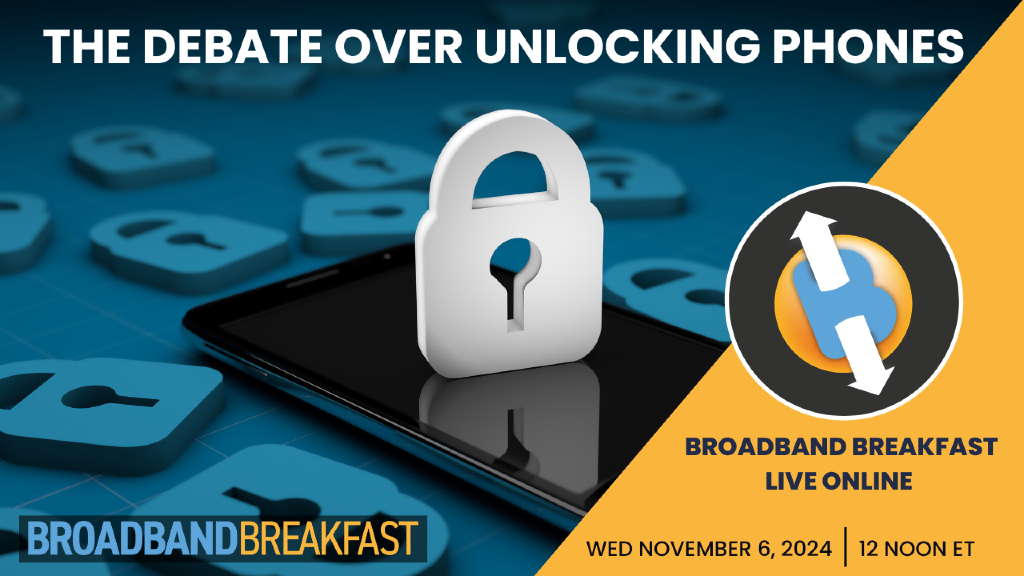Carriers Split on FCC's Phone Unlocking Proposal
'We have total inconsistency right now in the rules,' said Jeff Blum, executive vice president of external and government affairs at Echostar.
Broadband Breakfast

WASHINGTON, Nov. 11, 2024 - A proposed Federal Communications Commission rule requiring mobile carriers to automatically unlock phones after 60 days has divided the wireless industry, according to experts speaking at a Broadband Breakfast event Wednesday.
Consumers can purchase unlocked phones directly from manufacturers, but they typically cost significantly more than carrier-subsidized devices. These subsidies often come with an unlocking policy, which varies across different carriers - AT&T can keep phones locked indefinitely, T-Mobile requires one year, while Verizon must unlock after 60 days due to previous agreements.
The 60-day unlocking proposal, which passed with bipartisan support at the FCC, aims to create uniform standards across carriers.
 Broadband BreakfastJeff Blum
Broadband BreakfastJeff Blum
"We have total inconsistency right now in the rules," said Jeff Blum, executive vice president of external and government affairs at Echostar. "As the new entrant, we are fully supportive of what the FCC is proposing to do. We think that's good for competition and for consumers."
Though panelists broadly supported the proposal, debate continued over the exact timeframe, with some advocating for immediate unlocking. "We believe that cell phone locks are anti-consumer and we're calling for their removal entirely," said Liz Chamberlain, director of sustainability at iFixit, noting that Canada and the UK have eliminated handset locking.
John Bergmayer, legal director at Public Knowledge, emphasized that unlocking enables a secondary market for phones.
"The best way in general to reduce costs to consumers is to have competition," Bergmayer said. "Unlocking not only promotes competition between carriers, it also broadens the market for devices that customers can have."
The National Telecommunications and Information Administration recently urged the FCC to consider even shorter unlocking periods when fraud risk is low. However, Verizon's Vice President of Federal Regulatory Affairs Tamara Preiss cautioned against this approach.
"We’ve seen hundreds of thousands of handsets lost to fraud, where individuals impersonate customers to gain access to devices.” Preiss said. "We don't have an opportunity in shorter than 60 days to have any indication that the phone wasn't procured by fraud.”
While Preiss supported the FCC's plan to standardize unlocking rules, she emphasized the need to treat prepaid and postpaid phones differently.
"On the prepaid side we don't know who those folks are, we have very little information about them," Preiss explained. "When we provide a deeply discounted handset and they walk away, we're just out the entire subsidy."
AT&T echoed the subsidy concerns in its FCC filing, claiming that the new unlocking rules would undermine their ability to continue offering zero-interest payment plans for “increasingly expensive” smartphones.
T-Mobile sided with AT&T against the FCC’s proposal, claiming the agency lacks legal authority to enforce rules that would have “profound economic consequences.” But not everyone agreed.
"We believe, and others have commented, that the FCC has clear legal authority to regulate the nature of services as it relates to the FCC licenses under Section 303b," said Blum.
The proposal's fate may depend on the upcoming change in administration, though panelists suggested its bipartisan FCC approval could help it survive the transition.

November 6, 2024 - The Debate Over Unlocking Phones
The Federal Communications Commission recently put forward a proposal requiring mobile service providers to unlock customers’ phones within 60 days of activation, stirring up a heated debate within the wireless industry and beyond. On one side, advocates see this rule as a way to enhance competition and digital equity, giving customers the freedom to switch carriers that better meet their needs. On the other side, critics caution this could upend affordable phone programs and pave the way for increased smartphone fraud. Join us to dive deeper into this pressing issue and discover how this proposal could reshape the mobile landscape.
Panelists
- Jeff Blum, Executive Vice President, External & Government Affairs, EchoStar
- Tamara Preiss, Vice President, Federal Regulatory and Legal Affairs, Verizon
- Liz Chamberlain, Director of Sustainability, iFixit
- John Bergmayer, Legal Director, Public Knowledge
- Drew Clark (moderator), CEO and Publisher, Broadband Breakfast











Member discussion